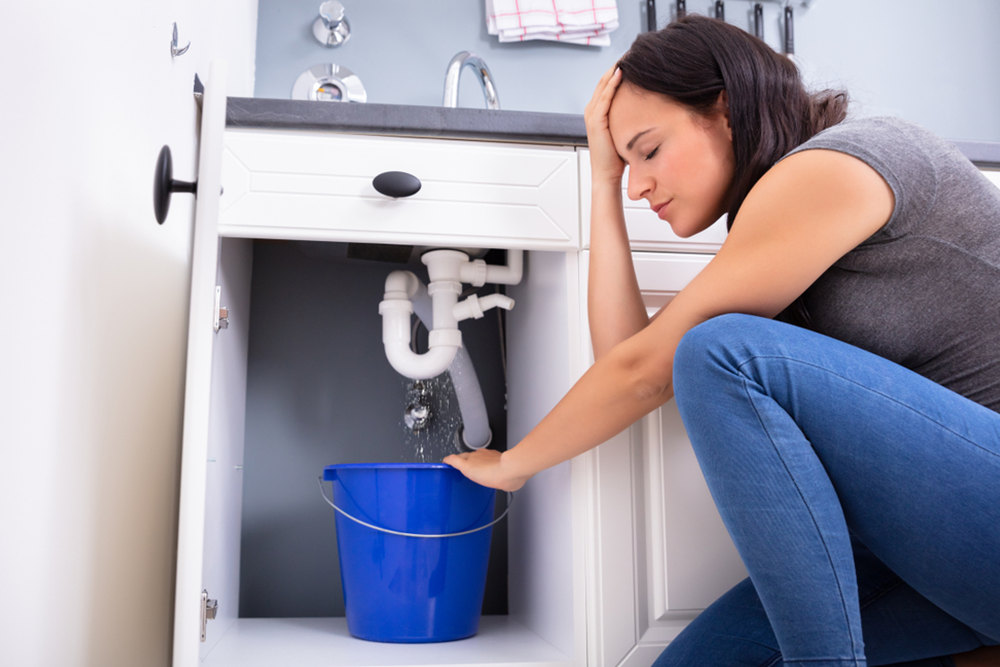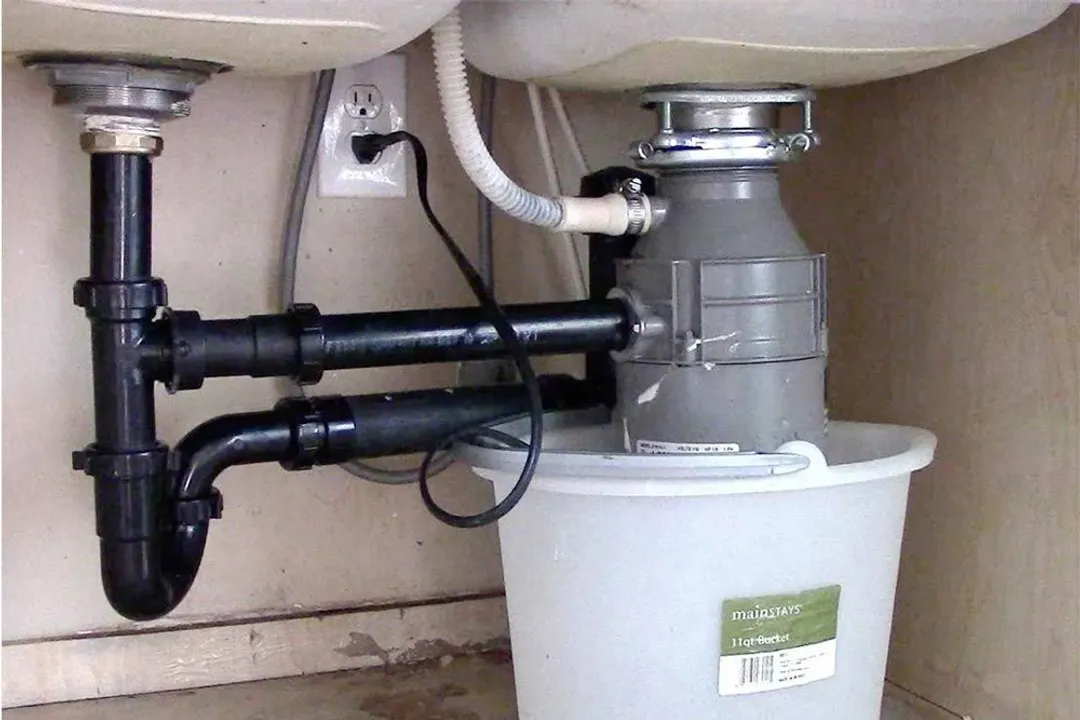My Definitive Guide to Fixing a Leaky Waste Disposal Unit
My Definitive Guide to Fixing a Leaky Waste Disposal Unit
Blog Article
What are your thoughts and feelings on How to fix a pretty consistent leak from my garbage disposal?

Waste disposal unit are essential kitchen area devices that aid in getting rid of food waste successfully. However, a leaking waste disposal unit can be an irritating and messy issue to take care of. The good news is, several leakages can be fixed conveniently with a few easy actions. In this article, we will certainly talk about just how to fix a leaking waste disposal unit successfully.
Introduction
Garbage disposals are mounted under kitchen area sinks and are made to shred food waste right into smaller items, enabling it to go through the pipes system quickly. While these devices are normally trustworthy, leaks can happen over time because of wear and tear, loose links, or damages to the unit.
Step-by-Step Overview to Dealing With a Leaking Waste Disposal Unit
Shut off the Power
Before trying any repair services, make certain that the power to the garbage disposal unit is shut off to stop the threat of electrical shock.
Situate the Leak
Identify the precise place of the leak and figure out the reason
Tighten up Connections
Utilize a wrench to tighten any loosened links between the disposal device and the plumbing system.
Change Seals or Gaskets
If the leakage results from worn seals or gaskets, remove the old parts and change them with brand-new ones.
Patching Splits or Holes
For fractures or openings in the disposal device, use epoxy or an ideal patching material to seal the damaged area.
Identifying the Resource of the Leak
Before attempting to deal with a leaking garbage disposal, it is essential to recognize the resource of the leakage. This can typically be done with aesthetic inspection or by conducting straightforward examinations.
Visual Inspection
Evaluate the garbage disposal unit carefully for any indicators of water leak. Pay attention to locations around seals, gaskets, and link factors.
Examining for Leakages
One method to examine for leaks is by running water via the disposal unit and looking for any type of visible indicators of leak.
Common Root Causes Of Leaks in Trash Disposals
Worn Seals and Gaskets
Seals and gaskets play an essential role in avoiding water from leaking out of the waste disposal unit. In time, these components can weaken, causing leakages around the disposal device.
Loose Links
The connections between the garbage disposal and the plumbing system can end up being loosened gradually, triggering water to leakage out during operation.
Fractures or Openings in the Disposal Unit
Physical damage to the waste disposal unit, such as cracks or holes in the real estate, can likewise cause leakages.
Devices and Materials Needed for Dealing With a Dripping Waste Disposal Unit
Before starting the repair service process, collect the needed devices and materials, consisting of a screwdriver, adjustable wrench, plumbing professional's putty, substitute seals or gaskets, and epoxy or patching material for repairing splits or holes.
Evaluating the Waste Disposal Unit After Repair Work
Once the fixing is complete, examine the waste disposal unit by running water through it to guarantee that the leakage has been settled.
Preventive Maintenance Tips to Prevent Future Leakages
To avoid future leaks, it is important to execute regular upkeep on your garbage disposal. This consists of keeping it clean, avoiding placing non-food things or hard objects down the disposal, and regularly looking for leaks or various other issues.
Verdict
To conclude, dealing with a leaking garbage disposal is a fairly simple procedure that can be completed with standard tools and products. By following the actions detailed in this article and practicing precautionary maintenance, you can maintain your garbage disposal in good working problem and stay clear of pricey repair services in the future.
HERE’S HOW TO FIX YOUR GARBAGE DISPOSAL
WHAT TO DO IF SOMETHING IS STUCK IN YOUR GARBAGE DISPOSAL
If the impeller won’t turn, there’s probably something stuck in the disposal. It could be a steak bone or peach pit, although plumbers report pulling all sorts of inappropriate objects out of disposals, such as bottle caps or aluminum foil. Make sure power to the disposal is off, and look inside to see if you can see the source of the jam.
Never stick your fingers in a disposal. Pull out anything you see with tongs or pliers.
If the disposal still won’t work, it may be time to call a plumber or consider buying a new disposal. GEM Plumbing & Heating is here for all of your garbage disposal needs.
WHAT TO DO IF YOUR GARBAGE DISPOSAL DRAIN IS CLOGGED
Take everything out from underneath your sink and put a bucket or other container under your disposal to catch any water that drains out. Disconnect your disposal from the power supply. If it’s plugged into a wall outlet, unplug it. If it’s hardwired into an electrical box, go to the electrical panel and turn off the breaker for the disposal. Pour ¼ cup of baking soda into the drain, followed by ½ cup of white vinegar. Give the solution a few minutes to fizz and do its work. Look into the disposal with a flashlight to see if you can see an object that might be causing the clog. If you see it, remove it using tongs or pliers. MORE TIPS ON DEALING WITH A CLOGGED GARBAGE DISPOSAL
Never use drain cleaner in a garbage disposal. It can damage the plastic parts inside the disposal. You can also be splashed with the caustic liquid while working to clear the clog. Beware! Never stick your fingers into a garbage disposal. Trust us — not a good idea. In many instances, your dishwasher drains through your garbage disposal. This allows the disposal to grind any large food particles that may be drained out of your dishwasher. There are some jurisdictions, however, where the plumbing code prohibits such a connection. WHAT TO DO WHEN YOUR DISHWASHER DRAINS THROUGH THE DISPOSAL
Run some water in the sink so your plunger has at least a ½-inch of water to create a seal and plunge vigorously up and down several times. You may need to repeat this several times. Run hot water down the drain to clear any residue that remains.

We were introduced to that article about Why Is from an acquaintance on our other site. Enjoyed our review? Please share it. Help other people find it. Many thanks for going through it.
Call Today Report this page